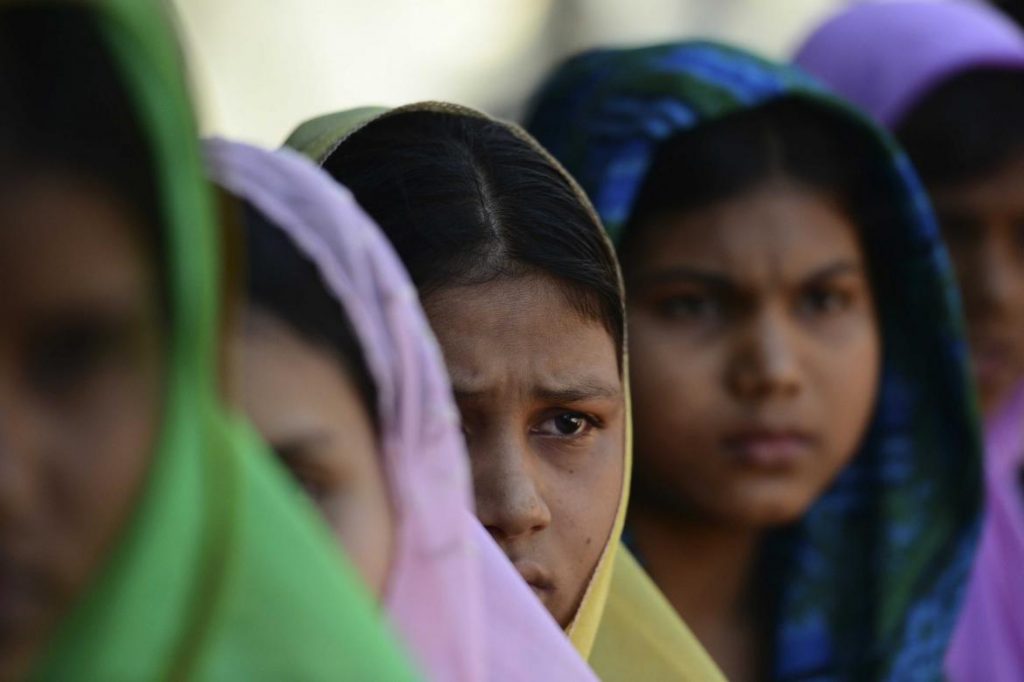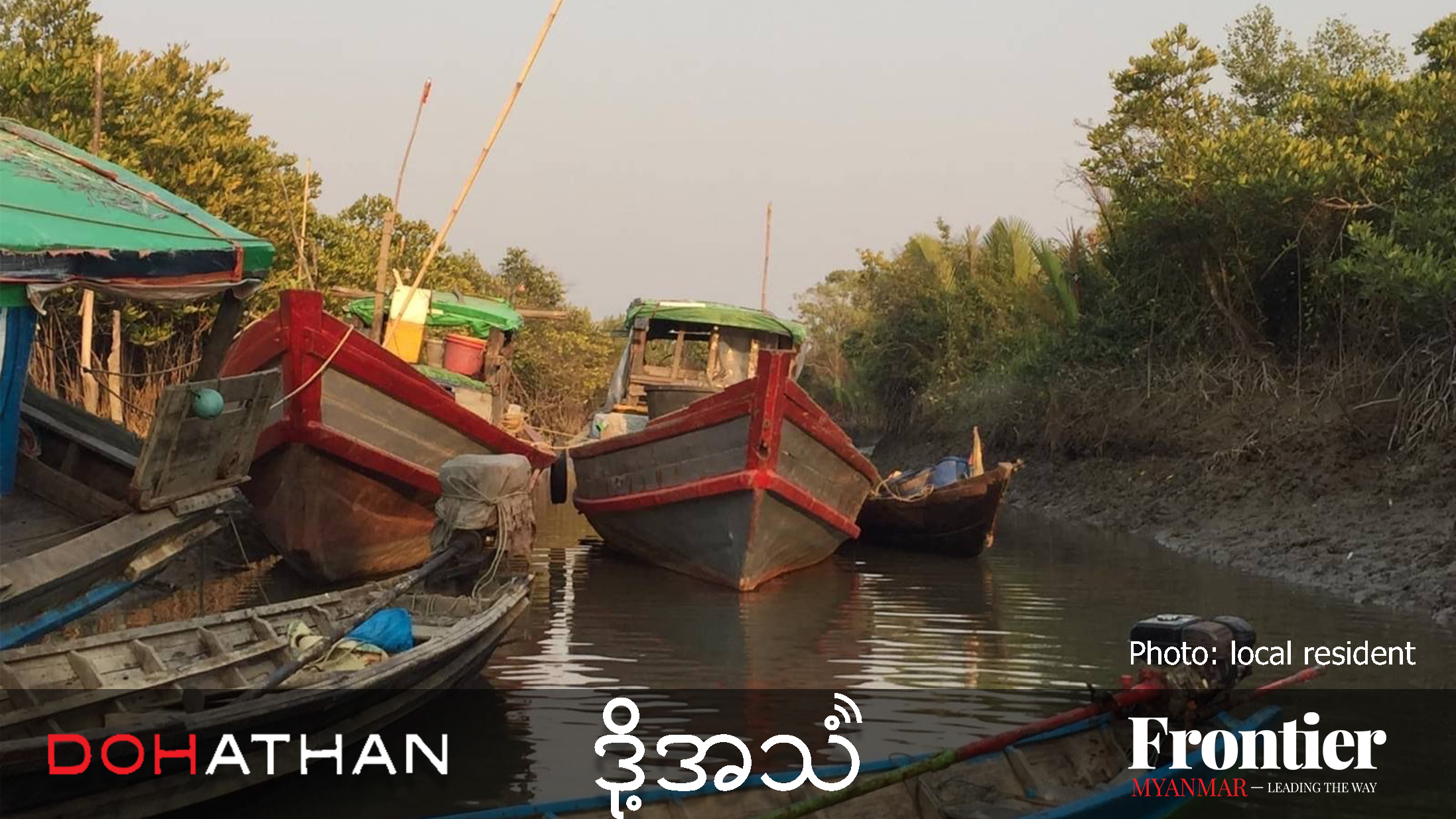A committee tasked with implementing the recommendations of Kofi Annan’s Rakhine State Advisory Commission says it has made progress over the past six months, highlighting the planned closure of three IDP camps in the state.
By MRATT KYAW THU | FRONTIER
ALMOST SIX months after the Advisory Commission on Rakhine State submitted its final report to the Myanmar government, a committee tasked with implementing the recommendations has submitted its first report to the government.
The Implementation Committee on Recommendations of Advisory Commission on Rakhine State was established in September 2017, and is headed by Minister for Social Welfare, Relief and Resettlement Dr Win Myat Aye. The commission was formed just weeks after attacks by the Arakan Rohingya Salvation Army on August 25 plunged the state into even deeper turmoil. It has been tasked with implementing the recommendations of the advisory commission, which was headed by former UN secretary-general Mr Kofi Annan, and the Maungdaw Region Investigation Commission, which was led by vice president U Myint Swe.
On February 19, the implementation committee, in cooperation with the government’s Union Enterprise for Humanitarian Assistance, Resettlement and Development in Rakhine, submitted its report to the government, in which it highlighted some of its achievements in recent months.
The report, which was published on the Facebook page of the government’s Information Committee, said that plans are underway to close three camps hosting internally displaced persons in Rakhine State. The camps house people who were forced to flee their homes when violence engulfed the state in 2012, displacing an estimated 140,000 people, mostly Muslim Rohingya.
Support more independent journalism like this. Sign up to be a Frontier member.
The three camps slated for closure are at Aung Mingalar, in downtown Sittwe, Thet Kay Pyin on the outskirts of Sittwe, and Taungpaw Camp in Myebon Township. It also said that the government is repairing and refurbishing 50 shelters at IDP camps in Sittwe and 12 individual houses in Ramree Township.
Frontier visited the Thet Kay Pyin camp in January, and residents there said members of the Rakhine government and UEHRD had met with camp leaders to discuss moving people from the camps. Residents said they had told officials they wanted to return to where they lived before the violence in 2012.
In the five years since the violence, only about 20,000 people have been able to return to areas near where they previously lived; around 120,000 still live in IDP camps.
Speaking at a press conference held in Yangon on February 26 to discuss the Rakhine conflict, U Aung Tun Thet, a member of both the implementation committee and UEHRD, told Frontier that negotiations had taken place and that “the resettlement will take place near to where they lived before”.
Aung Tun Thet said that the implementation committee could not answer questions that were not related to its mandate, which only included aid, resettlement and development.
It was unclear if the residents would be moved to camps, or would be given freedom of movement, a recommendation that was put forward by the advisory commission.
A spokesperson from the UN refugee agency told Frontier that the Rakhine State government and humanitarian agencies had addressed repair, maintenance and reconstruction needs for Sittwe’s IDP shelters in the 12 months to January. A further 20 percent of temporary shelters are in need of urgent repair before the onset of the rainy season later this year.
U Ali Razu, 63, originally from Nazi Ward near downtown Sittwe, told Frontier in January that “we are waiting for a decision to be made by our leaders and government”.
Another Thet Kay Pyin resident, Daw Aye Aye Than – a member of the Kaman community, one of 135 recognised ethnic groups in Myanmar – said that she wanted to return to her home. “But we’re reluctant to live together again in this kind of situation,” she said, in an apparent reference to safety concerns if Muslim and Rakhine communities were to live side by side again.
The implementation committee’s report said that in February 2017, the government introduced Mayu FM, a radio channel that broadcasts in the Burmese, Rakhine and Rohingya languages, and is currently only available in Maungdaw Township. When the channel was introduced, there was some opposition from the Rakhine community about the decision to broadcast in the Rohingya language.
It also recommended redeveloping the old airports at Munaung, an island in the south of the state, and at Mrauk-U, the ancient capital in central Rakhine. Both airports have lain abandoned for almost a decade.
Mrauk-U in particular, with its hundreds of temples that were built between the 15th and 18th centuries, offers significant potential for tourism development. It was the capital of the once-mighty Rakhine Empire until it was annexed by the Burmese Konbaung Dynasty in 1785. In its final report, the Rakhine advisory commission, recommended that the government collaborate with UNESCO to ensure that Mrauk-U becomes eligible for world heritage listing.
However, those plans suffered a setback in January when at least eight protesters were shot dead by police in Mrauk-U. They were protesting after the government had earlier cancelled an event planned to commemorate the 233rd anniversary of the fall of the Rakhine Empire.
Tensions appear to be bubbling under the surface. Two weeks later, U Bo Bo Min Theik, who had been the administrator of Mrauk-U at the time of the incident, was found stabbed to death at the side of a road in Rakhine, and on February 26, three bombs exploded in Sittwe, injuring a police officer.
In its report, the implementation committee said that 61 Muslims had been able to sit examinations at the University of Distance Education, and that intensive courses had been offered for 48 Muslims at the Government Technical Institute in Thandwe between October 27 and November 29, 2017. Nine Muslim students were also admitted at the UDE (Sittwe) and 39 at the same UDE in Toungup, the report said.
Because of concerns about anti-Muslim attitudes in Toungup, which was the scene of large-scale violence in 2012, the government said it has conducted these activities quietly.
A major, often under-reported issue in the Rakhine crisis is drugs. The Annan report said “enormous quantities of drugs (mainly methamphetamine, or ‘yaba’)” have been confiscated by Myanmar officials near the border with Bangladesh, and there are regular reports of drug busts being conducted in the state.
In October, a local official said they had seized methamphetamine pills valued at more than K7 billion (US$5 million) in Rakhine State during the month.
The committee said that it had taken action against two senior officers and 16 lower-ranking police officials who were being investigated for corruption charges related to drugs. Between January and November last year, there were 138 drug-related arrests, in which 191 people were brought to court.
The August attacks also brought border trade between Myanmar and Bangladesh to a halt. According to the report, trade resumed in October.
There are still significant issues to overcome in Rakhine State, however, including the distribution of aid.
“The unpredictable and increasingly complex bureaucracy for Government permissions and travel authorisations continues to hamper our efforts to respond to the needs of people in central Rakhine State, both in the displacement camps as well as in rural communities,” said Mr Pierre Peron, a spokesperson for the UN Office for the Coordination of Humanitarian Affairs in Myanmar.
Ko Brights Islam, who lives in the Thet Kay Pyin camp and is originally from downtown Sittwe, told Frontier that despite the talk of action, there had been no change to the situation on the ground.
“The government has said it is taking action, but I think this is a trick to the international community,” he said. “There are no changes at all, nothing is different.”







